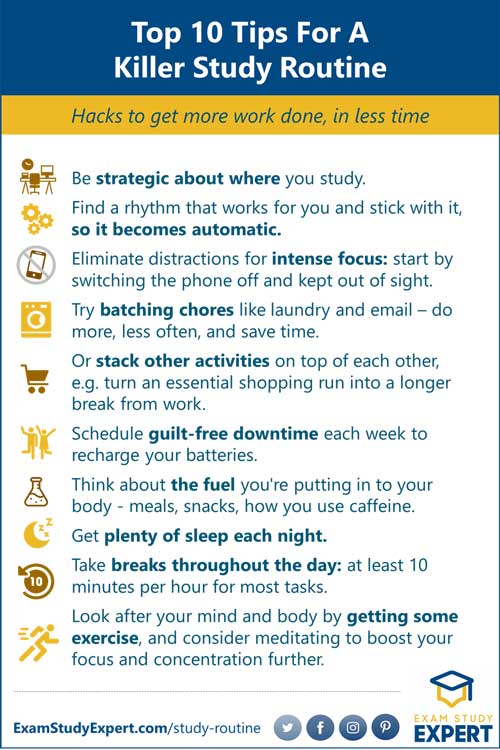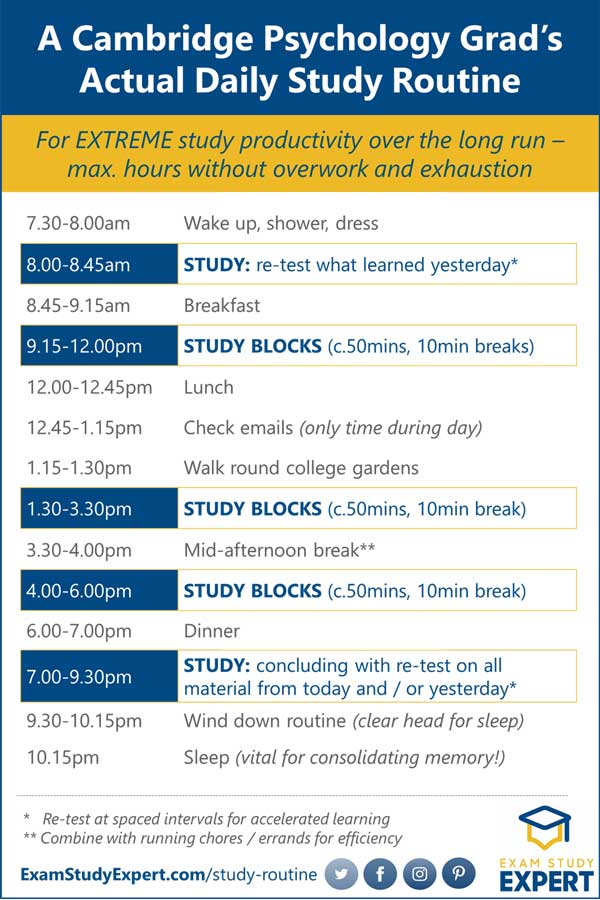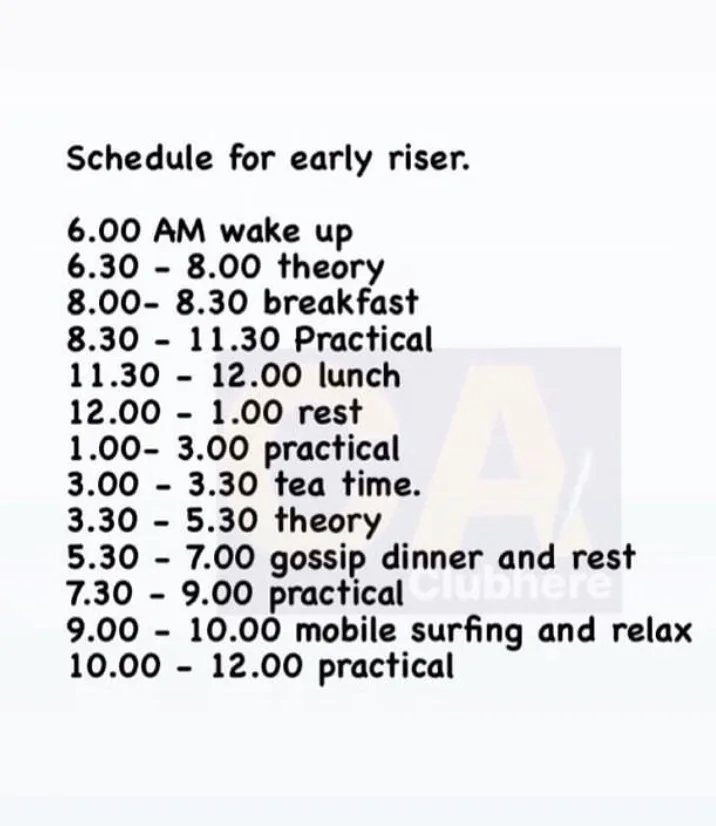How to Build the Perfect Study Routine for Success
Having an effective study routine is the foundation of academic success. It not only helps you stay organized but also ensures that you make the most out of your study sessions. Whether you’re preparing for exams or managing regular coursework, a well-structured routine can transform your academic experience. In this article, we’ll explore practical tips and strategies to help you build a study routine that works for you.

1. Why a Study Routine is Essential
A study routine is more than just a schedule; it’s a tool that enables you to manage your time effectively, stay on track, and prevent procrastination. Having a clear plan helps reduce stress and ensures you’re consistently progressing in your studies.
Key Benefits of a Study Routine:
-
Better Time Management: You’ll know exactly what to do and when.
-
Increased Productivity: A routine helps you stay focused and avoid distractions.
-
Reduced Stress: A well-planned study schedule prevents last-minute cramming.
By establishing a study routine, you’ll create a productive environment that encourages consistent study habits.
2. Set Clear, Achievable Goals
To create an effective study routine, start by setting clear, achievable goals. Without goals, it’s easy to feel directionless, especially when there’s a lot of content to cover. Break your goals into small, manageable tasks that you can tackle daily.
Tips for Setting Goals:
-
Be Specific: Rather than saying “study math,” specify which chapters or topics you’ll focus on.
-
Set Daily and Weekly Goals: Include short-term goals to stay motivated and track progress.
-
Prioritize Tasks: Identify which tasks need the most attention and tackle them first.
By setting SMART goals (Specific, Measurable, Achievable, Relevant, and Time-bound), you’ll have a clear roadmap for success.
3. Create a Consistent Schedule
Consistency is key when it comes to building a study routine. You need to set aside regular blocks of time to study and avoid interruptions. Whether it’s an hour in the morning or after school, consistency helps reinforce your commitment to your studies.
Tips for Scheduling Your Study Time:
-
Time-Blocking: Dedicate specific time slots to each subject or task.
-
Follow a Pattern: Study at the same time each day to make it a habit.
-
Consider Your Energy Levels: If you’re more alert in the morning, tackle the most challenging subjects first.
Make sure your study schedule is realistic, taking into account other commitments like work or social activities.

4. Set a Comfortable and Productive Study Space
Creating the right study environment is crucial for maintaining focus. A clean, organized, and quiet space minimizes distractions and helps you concentrate better.
How to Set Up Your Study Space:
-
Choose a Quiet Location: Find a space with minimal noise and distractions.
-
Get Comfortable, Not Too Comfortable: While it’s essential to be comfortable, avoid lounging in bed or too cozy spots.
-
Keep It Organized: Ensure all your study materials are easily accessible.
A dedicated study space sends a signal to your brain that it’s time to focus and work.
5. Mix Active and Passive Learning
A balanced approach to active and passive learning can keep your routine interesting and efficient. Active learning involves engaging with the material through practices like note-taking, teaching, or problem-solving. Passive learning includes activities like reading or watching lectures.
How to Mix Active and Passive Learning:
-
Active Learning: Take notes during lectures, solve practice problems, and teach the material to someone else.
-
Passive Learning: Watch educational videos, listen to podcasts, or read books and articles.
By balancing both approaches, you’ll engage with the material in various ways, helping to retain more information.
6. Use the Pomodoro Technique
The Pomodoro Technique is a time management method that breaks study sessions into short, focused intervals with short breaks in between. It’s highly effective for maintaining concentration and preventing burnout.
How to Use the Pomodoro Technique:
-
Set a Timer for 25 Minutes: Focus intensely on one task.
-
Take a 5-Minute Break: Stretch, walk around, or relax.
-
Repeat: After four Pomodoro sessions, take a longer break (15–30 minutes).
This method helps you stay productive without overwhelming yourself, ensuring you make steady progress throughout the day.

7. Incorporate Review Sessions
Reviewing what you’ve learned is as important as learning new material. Make time in your routine to revisit concepts, test yourself, and reinforce your understanding.
How to Effectively Review:
-
Use Spaced Repetition: Review material at increasing intervals to reinforce your memory.
-
Active Recall: Instead of just re-reading notes, try to recall information from memory and test yourself.
-
Summarize: After learning, write a summary of what you studied in your own words.
Frequent reviews help you retain information in the long term and prepare effectively for exams.
8. Avoid Multitasking
Multitasking can significantly reduce your productivity and focus. It’s much better to concentrate on one task at a time, allowing you to give it your full attention and do it well.
Tips for Avoiding Multitasking:
-
Focus on One Subject at a Time: Avoid switching between tasks or subjects too frequently.
-
Limit Distractions: Turn off notifications and apps that might interrupt your study time.
-
Set Clear Boundaries: If you’re studying, ensure you’re focused solely on studying.
By staying focused on one task, you improve both the quality and efficiency of your study sessions.
9. Take Care of Your Health
Studying can be mentally and physically taxing. It’s important to take care of your mental and physical health to maintain your productivity and focus. Without good health, your study efforts can become ineffective.
Tips for Maintaining Health:
-
Get Enough Sleep: Aim for 7–9 hours of sleep each night to keep your brain sharp.
-
Exercise Regularly: Physical activity boosts energy levels and reduces stress.
-
Eat Well: A balanced diet improves focus and cognitive function.
Remember, your body and mind need rest to function optimally, so prioritize health alongside studying.
10. Track Your Progress
Tracking your progress helps you see how far you’ve come and motivates you to keep going. Whether it’s keeping a journal, using an app, or creating a visual tracker, having a record of your progress boosts your morale and keeps you on track.
Ways to Track Your Progress:
-
Use a Study Journal: Write down what you’ve learned each day and reflect on areas of improvement.
-
Track Milestones: Celebrate when you complete major tasks or reach study goals.
-
Evaluate Your Routine: At the end of the week, review your schedule and adjust as necessary.
Tracking your progress will give you a sense of accomplishment and help you identify areas for improvement.

Frequently Asked Questions (FAQs)
1. How do I stay motivated with my study routine?
Set clear goals, track progress, and reward yourself for completing tasks. Staying consistent with your routine also helps build motivation over time.
2. What should I do if I fall behind in my study routine?
Don’t panic. Review your schedule and adjust it as needed. Focus on catching up on the most important tasks and gradually work through the backlog.
3. How do I make my study routine flexible?
Be realistic with your expectations. Leave room for adjustments, and make sure to include time for breaks and relaxation.
4. How can I focus better while studying?
Create a distraction-free study space, use the Pomodoro technique, and take regular breaks to maintain focus.
5. What is the best way to review study material?
Use active recall, spaced repetition, and summaries to review the material effectively. Revisiting content at regular intervals ensures better retention.
Conclusion
Building an effective study routine requires time, consistency, and a bit of trial and error. By implementing the strategies discussed above, you’ll be well on your way to improving your study habits and achieving academic success. Stay disciplined, take care of yourself, and remember to celebrate your progress along the way!








